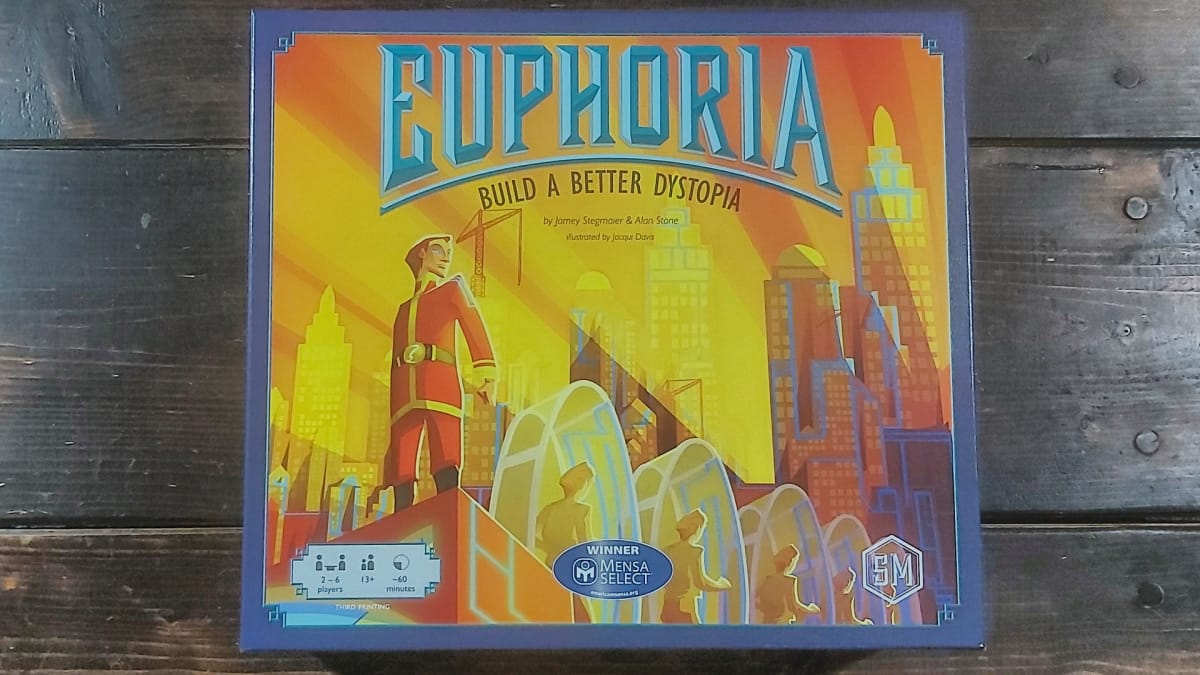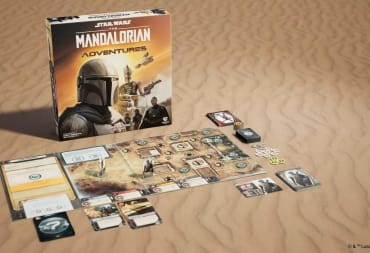You don't often find media about the actual running of a dystopia. Even films like Brazil that go into the background bureaucracy aren't really about how a dystopian society is run. Of course, if one company in the tabletop industry could be expected to change that, you can be sure it's Stonemaier Games. Euphoria is a worker-placement board game that tasks the player with changing a dystopian society from the inside out and was designed by Alan Stone, and Jamey Stegmaier, the same team behind Viticulture.
The background of Euphoria is a little complicated but is presented in an interesting way. Going into the game you know that you grew up in a dystopian state known as Euphoria (hence the title), and were confronted with the choice of escaping the system or working from the inside to change it for the better. Obviously, you chose to stay, and now it's your job to try and fix the broken system. How do you fix the system? By making sure you're the one who ends up in charge of it, of course.
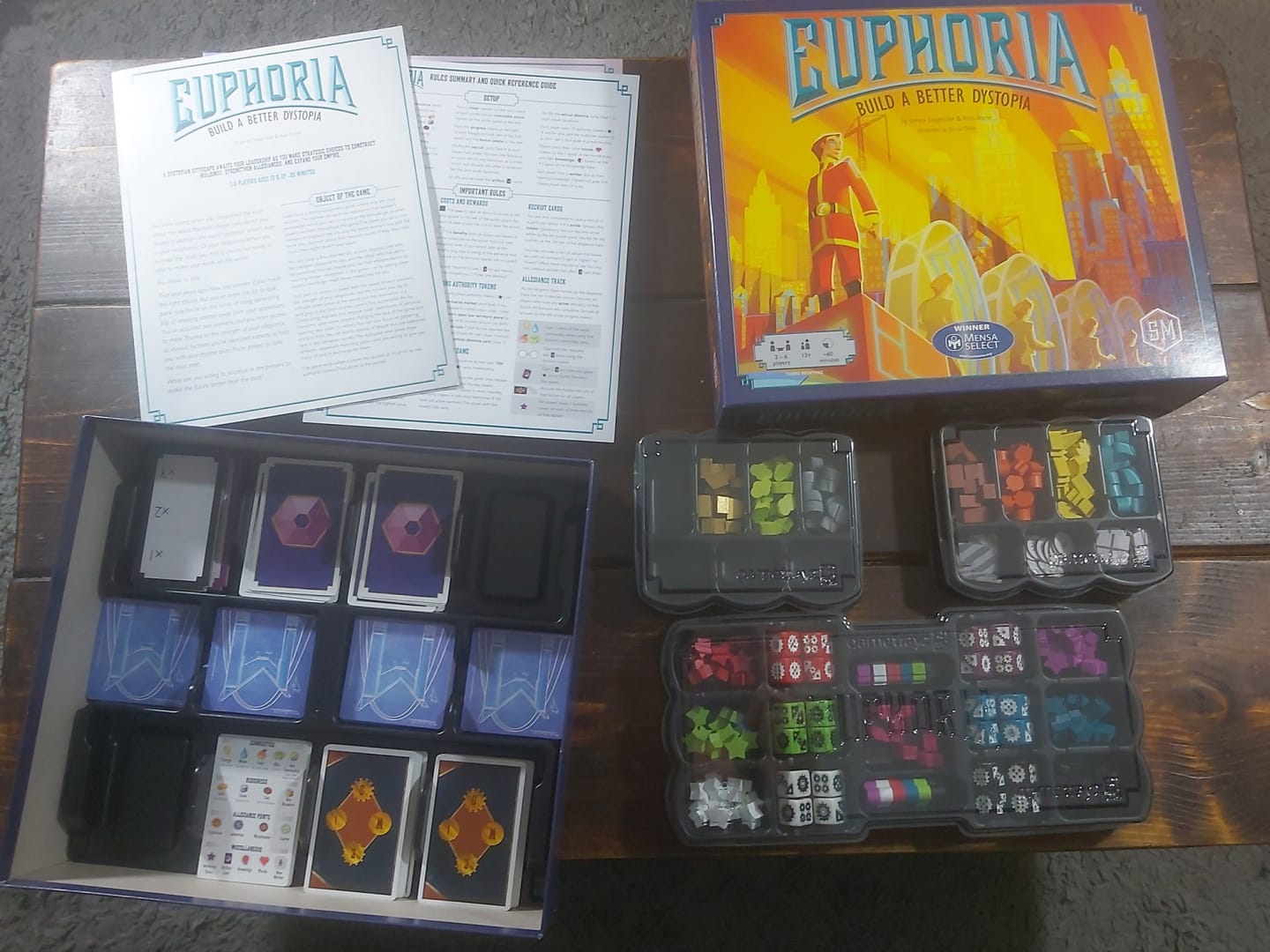
The reason I say that Euphoria's narrative is explained in an interesting way is that there is a lot more to it than what you're immediately presented with. The city has a history, mired in post-apocalypse and elitism that you only know if you read the entirely optional segment on the back cover of the rules. Most games would typically put this chunk at the start of the rules, and force the player to read it. Having it optional is pretty smart, as it allowed those who don't necessarily need or want a strong narrative basis to still enjoy the game at a mechanical level without feeling like they're missing out on something.
In general, the rules are exceedingly well-thought-out and presented in a way to maximize ease-of-learning. Then again, this is a Stonemaier product. If you didn't go into it expecting the top-notch quality to be oozing from every component and facet then you've clearly not tried the rest of their work before. The back of the book features a section for tips on learning and teaching the rules, the different sections are categorized so if you have a question on a particular topic you just go straight to the information you need. Never once did searching for answers on a rule take me longer than 10 seconds.
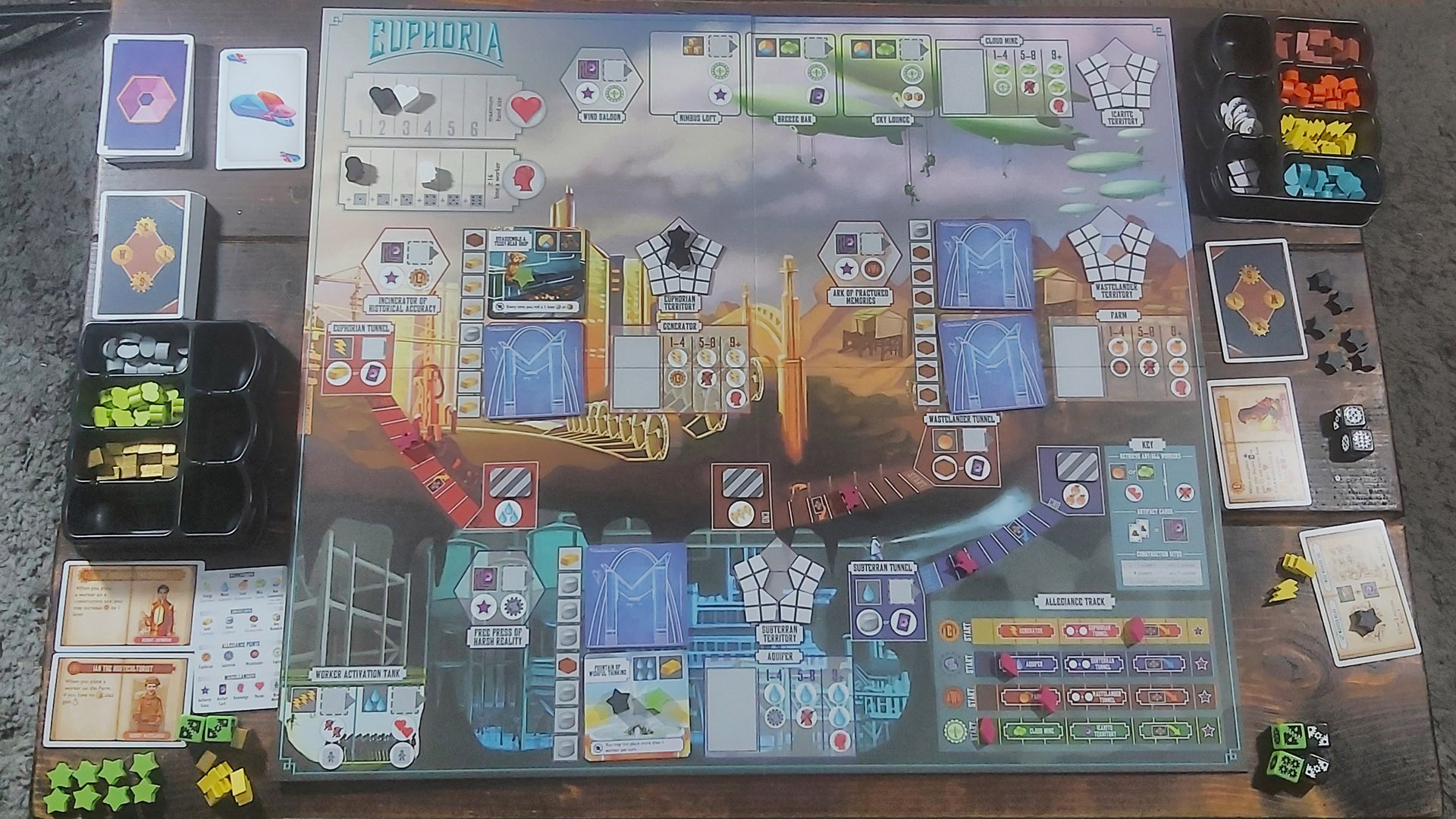
The question is, does this characteristically Stonemaier attention to detail carry over to the mechanics of Euphoria? The answer to that is a resounding, but probably unsurprising 'yes.' Unlike many eurogames, Euphoria doesn't contain phases, rounds, or even that many choices of action. Each player takes their turn, performs one of at most three different actions they can take, and then the next player goes. This repeats until the end of the game, meaning that at high-levels of play, you can be running through turns faster than a BGG commenter disowning a Monopolyplayer.
When you say Euphoria is a worker-placement game, that is said in the most literal sense. Your two main actions in the game are 'place worker' or 'recall worker(s)', that's it. You may think that sounds overly simplistic, but honestly, there is so much depth hidden within such simple mechanics. The main thrust of the game is to build your authority in the city, with the first player to place their 10 authority tokens declared the winner. You accomplish this by having your workers collect resources and commodities, and then spending these to gain your authority.

Things aren't that simple, however, as you must contend with the game's 4 factions, as well as your own workers' morale and intelligence. The four factions each control one section of the city, with each section specializing in one resource and one commodity each. You have two recruits on your side who are from the different factions, and you can only gain access to benefits from the factions as long as you have an active recruit that belongs to said faction. You also have to build structures in each factions area that allow you both to place authority stars and gain new resources.
Morale and knowledge are factors that affect your in-hand cards and how many workers you can have. In-game your workers are determined by dice, and you start the game with two. You can unlock more as you go, but you have to be very careful. When you roll your workers, the numbers added together are your workers' collective knowledge. If their knowledge goes over a certain amount, you'll have an uprising on your hands and will have to get rid of your smartest worker to quell it.
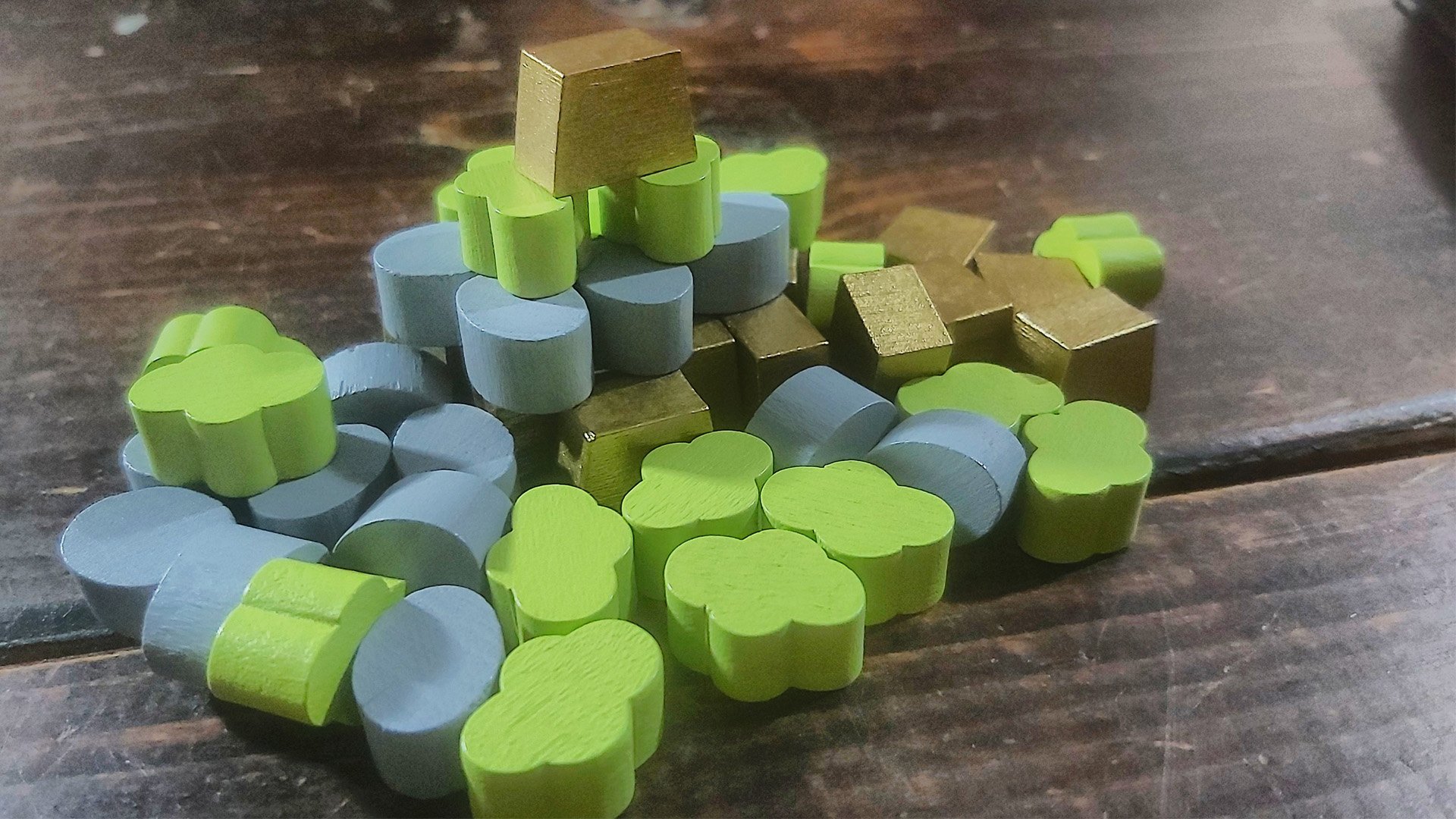
As if that wasn't bad enough, you do have a one-time third action that you can take other than placing and recalling workers. Each player starts the game with a moral dilemma. The outcome of these dilemmas is always the same, but the cost and narrative implications are random. Basically, it's a choice between getting to place one of your authority stars or getting an extra recruit so you can gain more benefits and potentially place even more stars later in the game. It's an interesting balance between quick rewards that could give you an earlier victory, and playing the long game.
The irony of trying to 'improve' your dystopia while being faced with moral dilemmas and quashing your own worker uprisings isn't lost on me. You may have set out to 'build a better dystopia' as the cover says, but is it really all that much better if you're burning books and stomping on the necks of workers to do it? That's the real narrative fun of Euphoria. No matter what choices you make or how much of the narrative you take on board, you'll never really see the dystopia get any better, especially not as you make things harder for the other players as you approach victory.
Of course, you'll only get these elements out of Euphoria; if you look for them. As I said above, the story is kept in the background mostly, leaving the mechanics room to shine, and shine they do. You may be fooled into thinking, even after several games, that the mechanics are simple and something you'll grow bored off quickly, but in all my time playing I don't think I've ever got fed up with it. As each game starts out things feel familiar, but before long you've ended up with a different complex web of action stretching out from your starting point.
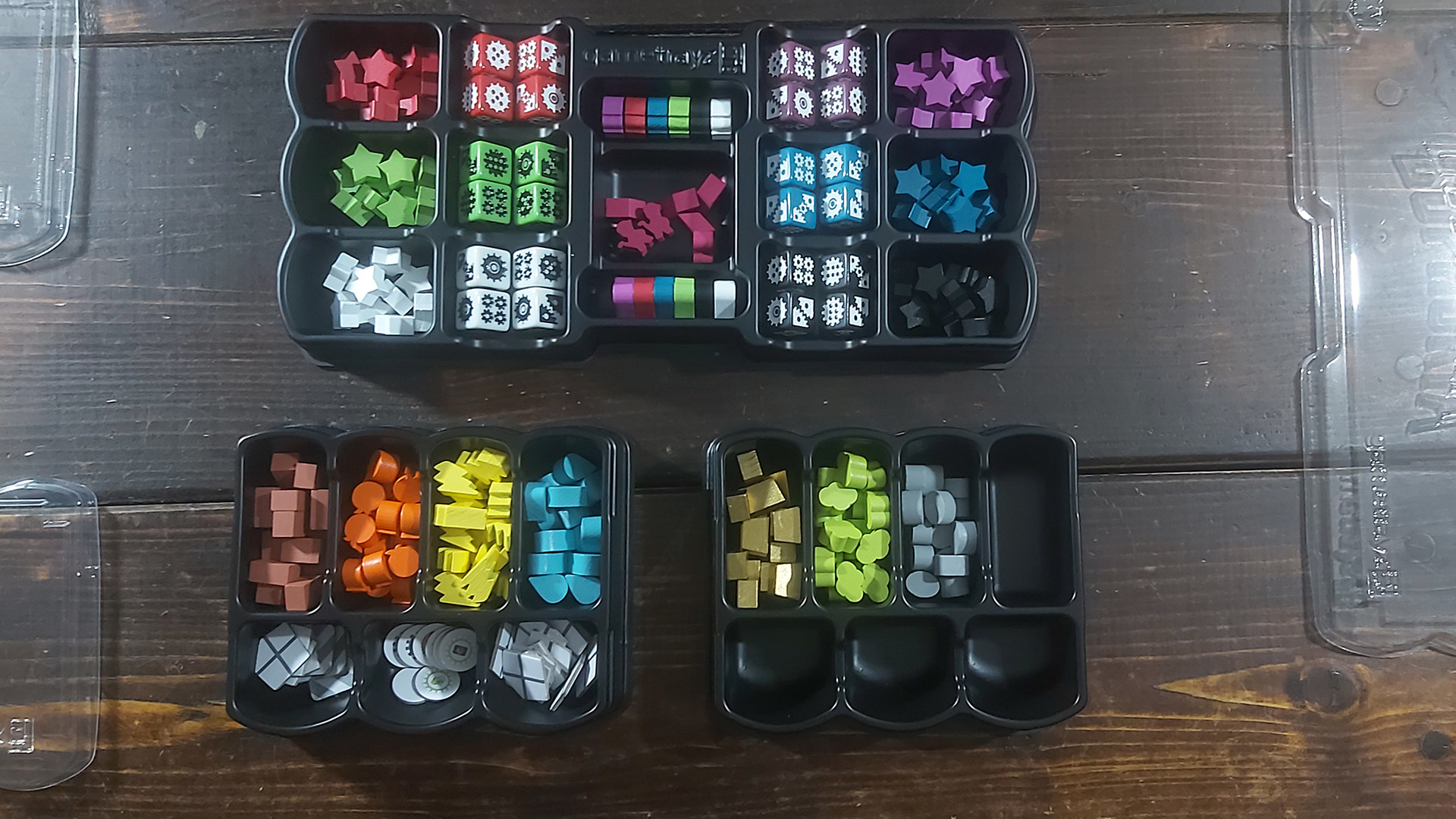
I think the main reason that Euphoria manages to stay engaging is the elements that do change. Going in you don't know what factions the other players will be trying to curry favor with, nor do you necessarily know what buildings will be constructed. You have to keep a very close eye on your opponents at all times because where your authority stars get places can protect you from negative effects, and those can be very detrimental to your chances of success. Many times I found myself 2 turns behind an opponent and ended up losing thanks to an inability to plan ahead.
As if all of that wasn't enough to get you interested, there are a bunch of variants to the game that you can use to keep things interesting. There are a few different drafting variants that allow you more control over the recruits you start with, and the buildings that get put on the board. In particular, the interesting thing about this is the fact that you can backdraft terrible or useless recruits to your opponents.
The final thing of note is the game's art. The cover is very reminiscent of a certain era of propaganda posters, which is very fitting for the theme of the game. My only disappointment with the internal art is that it seems to mostly drop this aesthetic. The art of the game itself is very strong but mostly feels lackluster compared with what's on the front. The lines are just a little softer, and the lack of any standout features makes it blend into the background against such strong mechanics and cover art.
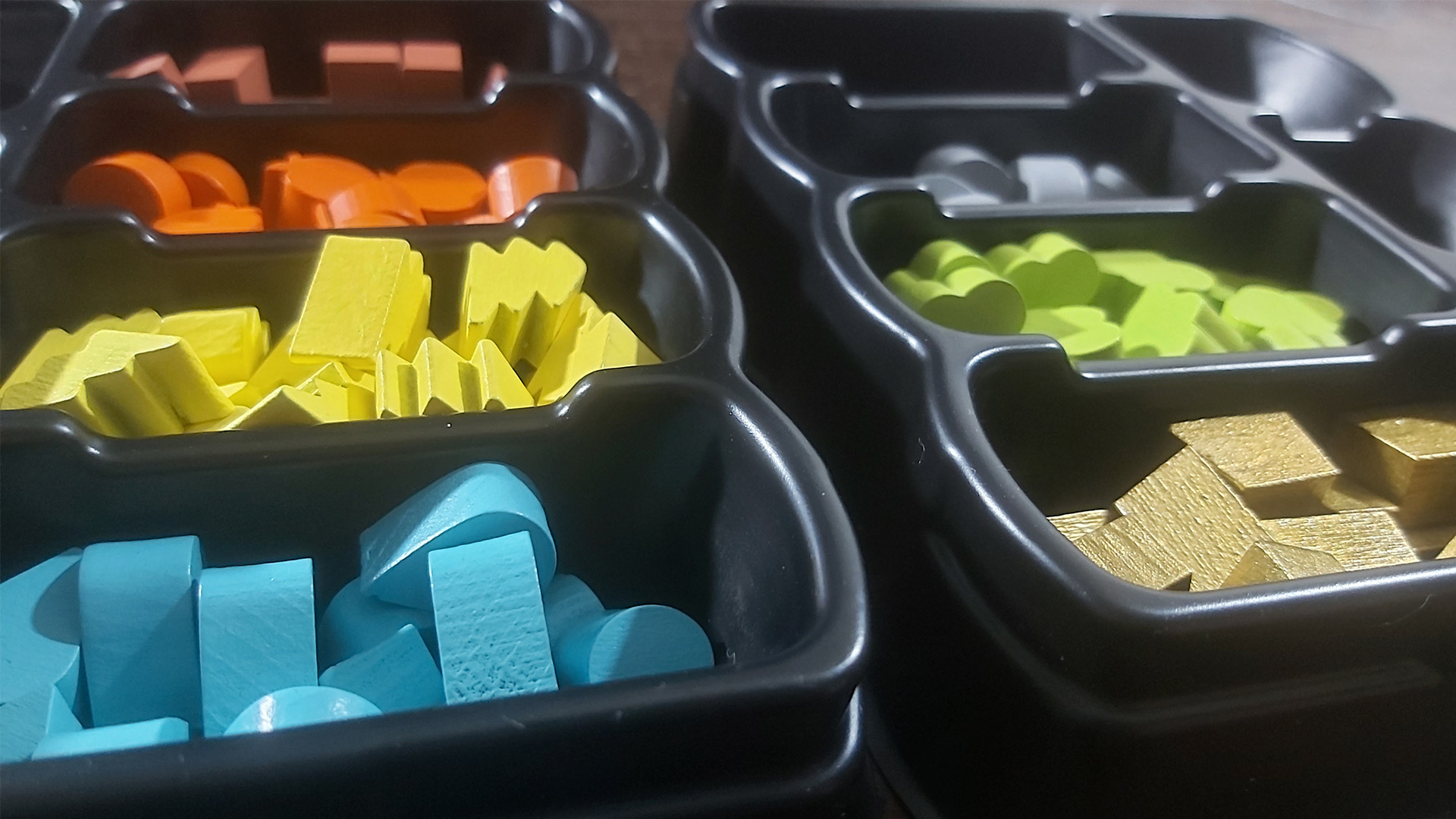
A note on "Chrome" An important element of board games that aren't always talked about is how well and how easily it is stored, and how easy it is to get out and play. In this printing of Euphoria, Stonemaier has started including specially designed trays from Game Trayz, a company that makes token trays for various different games. The trays included here seem more built around easy storage than in-game use but could be employed for both. They're not only incredibly sturdy, but they make storage and deployment so much smoother than I have ever experienced before. More companies need to start considering this level of commitment to a good set-up and put-away experience when designing their games.
The Bottom Line:
Overall, Euphoria bears all the hallmarks of a Stonemaier game. It is incredibly well-designed, has a lot of small details that only a gamer would think of adding, and is possibly one of the most deceptively simple games I've ever played aside from Azul. Whether you go into it for the story of a post-apocalyptic dystopian society, or simply for an engaging worker-placement eurogame, you're going to find exactly what you're looking for. With variants that keep the game interesting long beyond what you would expect, not only is this a great choice for almost any type of gamer, but it also represents incredible value.
Get this game if:
- You enjoy solidly-made worker-placement gameplay.
- You're a fan of Stonemaier's design and attention to detail.
- You've always wanted to build a better dystopia.
Avoid it if:
- You want a game's story to be more front-and-center.
- You hate pure-and-simple worker-placement gameplay.
The copy of Euphoria used to produce this review was provided by Stonemaier Games.
Review Summary
Have a tip, or want to point out something we missed? Leave a Comment or e-mail us at tips@techraptor.net
